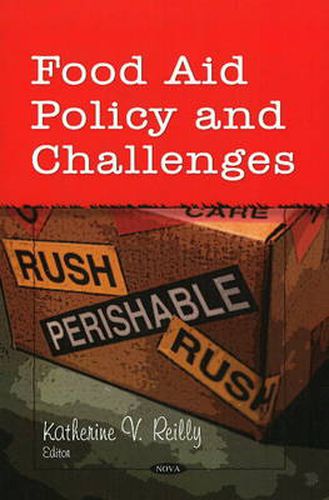Readings Newsletter
Become a Readings Member to make your shopping experience even easier.
Sign in or sign up for free!
You’re not far away from qualifying for FREE standard shipping within Australia
You’ve qualified for FREE standard shipping within Australia
The cart is loading…






Food aid is hard to summarise succinctly due to many related issues, but in general it is about providing food and related assistance to tackle hunger, either in emergency situations, or to help with deeper, longer term hunger alleviation and achieve food security (where people do not have to live in hunger or in fear of starvation). International concessional flows in the form of food or of cash to purchase food in support of food assistance programs. The tying of food aid with conditions that benefit the donor has been one of the reasons food aid has not been effective, and criticised for benefiting multinational food companies and donor nations more than recipients. Food aid constituted over 20% of global aid flows in the 1960s, but is now less than 5%. Yet, it is still important because of the prevalence of world hunger and the increase in food emergencies in the past decade. The decline of food aid, as well as the way in which it is delivered and used, are therefore of importance.
$9.00 standard shipping within Australia
FREE standard shipping within Australia for orders over $100.00
Express & International shipping calculated at checkout
Food aid is hard to summarise succinctly due to many related issues, but in general it is about providing food and related assistance to tackle hunger, either in emergency situations, or to help with deeper, longer term hunger alleviation and achieve food security (where people do not have to live in hunger or in fear of starvation). International concessional flows in the form of food or of cash to purchase food in support of food assistance programs. The tying of food aid with conditions that benefit the donor has been one of the reasons food aid has not been effective, and criticised for benefiting multinational food companies and donor nations more than recipients. Food aid constituted over 20% of global aid flows in the 1960s, but is now less than 5%. Yet, it is still important because of the prevalence of world hunger and the increase in food emergencies in the past decade. The decline of food aid, as well as the way in which it is delivered and used, are therefore of importance.